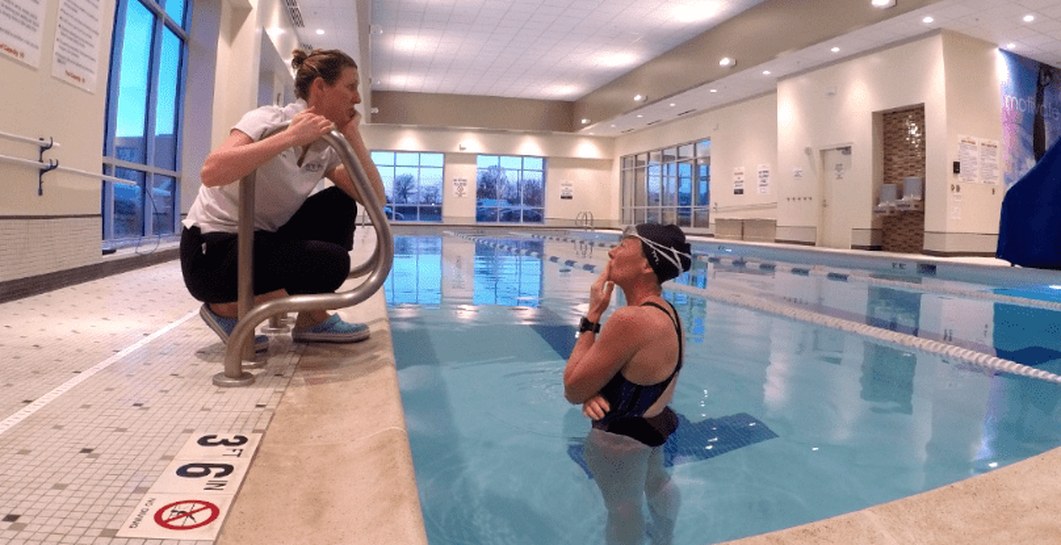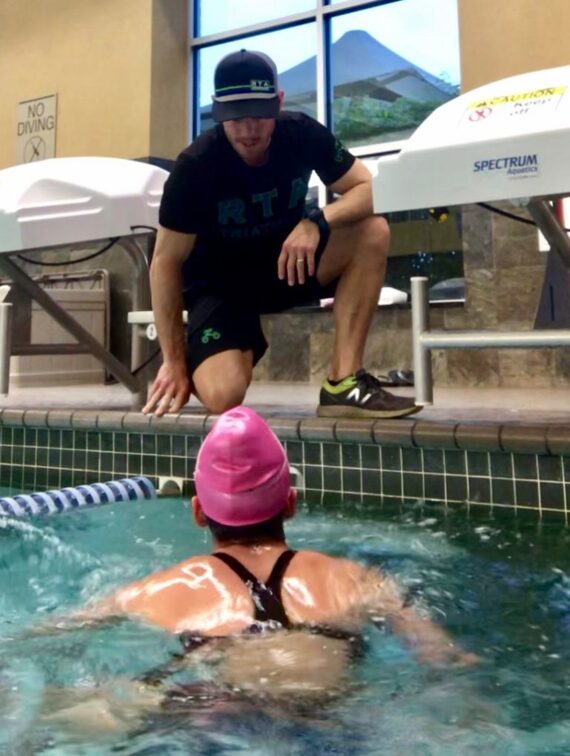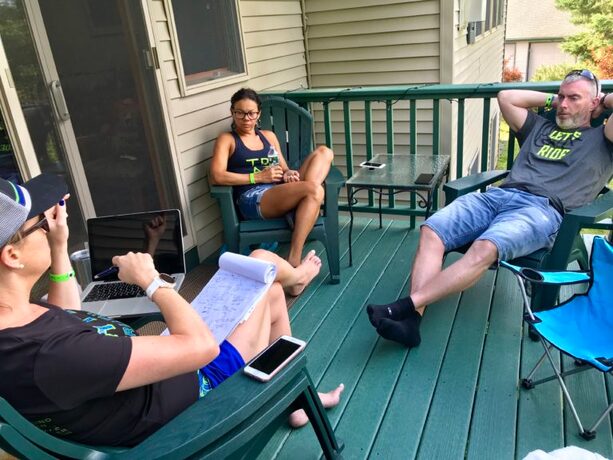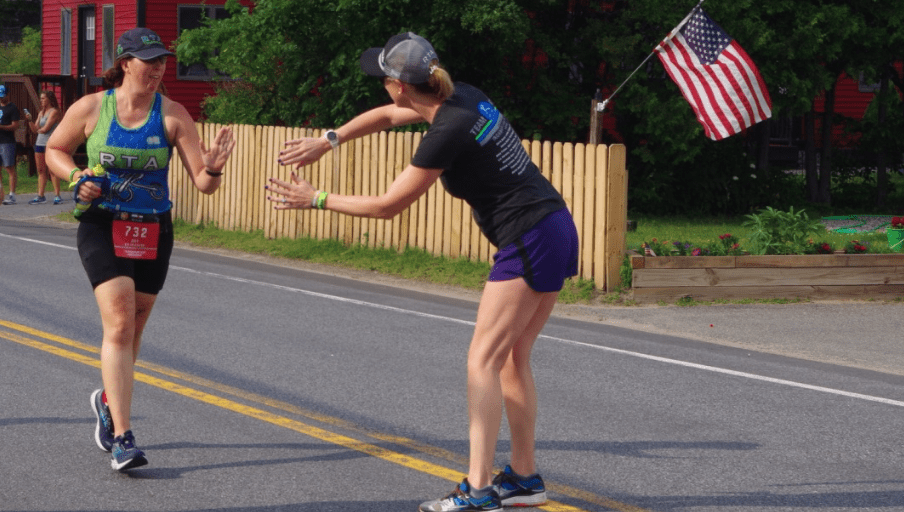|
Hiring a triathlon coach is becoming the “norm” among age/amateur group triathletes. An EXPERIENCED COACH can make a HUGE difference by helping you avoid stupid pitfalls (regardless of the athletes experience) and ultimately get you to the start line fit and ready to rock on race day. With the increased demand for triathlon coaches, there are more “coaches” and options to choose from than ever before. So, how do you decide which triathlon coach is right for you and who you will entrust with your time, money and goals? FIRST THINGS FIRST Coaches aren’t for everyone, but all kinds of athletes can benefit from having one. In other words, it doesn’t matter if you consider yourself “fast” or “slow”… if you’re brand new to the sport or if you’re “past your prime.” Goals are goals and having an experienced coach in your corner will greatly increase the odds you will maximize your potential. We recommend connecting with a few coaches who “check your boxes” and appear to be a good fit. The coach doesn’t necessarily have to be local as online coaching using platforms like Training Peaks can be highly effective. When you speak to a perspective coach, be honest, ask questions and express your concerns. Does the perspective coach ask about you and your goals? Hopefully! Has the coach worked with someone like you (family, work situation, age, goals, etc) before? And remember, the triathlon coach that works well for your friend, may not be the best fit for you. At the end of the day, just like hiring an accountant or an attorney, you will find many options and a variety of price points. Generally, you get what you pay for, but not always, so make sure you do your due diligence. Below are 4 items we suggest you consider when deciding who to hire as a triathlon coach. Credentials Anyone can call themselves a triathlon coach. So how do you discern who will have the “know how” to successfully guide you to the start line… especially when things don’t go exactly to plan? CERTIFICATIONS: There are a ton of coaching certifications (some better than others), but like college degrees, just because you have one, doesn’t mean you know what you’re doing (or how to do what your degree says). Regardless, you likely expect the coach you are considering to have some kind of coaching certification. COACHING EXPERIENCE: Aside from certifications and perhaps more importantly is the coach’s experience and overall training knowledge. Presumably, the longer the perspective coach has been coaching and the more athletes the coach has worked with (on a personal level) over the years, the more EXPERIENCE and KNOWLEDGE they will have to draw on when guiding you. RACE EXPERIENCE: The coach’s race experience can also be an added benefit. In other words, triathlons & races completed at your goal distance. For example, if you want to train for an full distance triathlon (i.e. “IRONMAN,” “FULL,” or “140.6”) then it seems logical you would want a coach who has at least completed this distance themselves at one point and hopefully more than just once. Similarly, if you are looking to podium and/or qualify for a championship event, then having a coach who has achieved this herself or with other athletes she has coached, would be advantageous. GOOD TRIATHLETE = GOOD COACH? Finally, keep in mind, just because someone is a good triathlete, doesn’t automatically make them a good coach. This very important to understand because it’s easy to assume “good triathlete = good coach.” While this can be the case, it is not always. Communication This may be THE MOST IMPORTANT THING to look for in a coach. Good coaching means good communication. Accessibility and responsiveness are key pieces of being a good communicator. Keep in mind, communication is a two way street. Meaning, it’s also very important for the athlete to communicate well with the coach. For example: Is a particular workout unclear? Do you feel sick? Is work killing you? Are you traveling for work this week? Where? Finding a coach that is a good communicator and one who encourages regular communication (& feedback) is very important. As the athlete, you want to be a priority to the coach and NOT a secondary responsibility. At RTA Triathlon, our coaches coach full time and their athletes are top priority. Athlete questions or revisions are addressed in less than 24 hours and often, instantly. In other words, they are professional coaches and don’t have another job. Additionally, communication is one of the main differences between having a coach and buying a training plan. A training plan is stagnant and does not change where as a coach will make changes to an athlete’s training program based on a number of factors throughout the year. Keep in mind, an athlete’s “annual training plan” is only good and accurate on the day it was created. Some coaches limit the frequency or type of communication and often the cost of coaching reflects this. The number of plan revisions may also be limited. For example, “1 phone call per month” or “email only” communication. Or revisions can only be made once per month or twice per year. In our experience, this does not work as it does not serve the athlete adequately. RTA offers unlimited communication via text, email or phone and as many plan revisions as necessary. Life happens and it’s important your coach adapts your plan appropriately and does so in a timely manner. Honesty This is a tricky one, but it’s also an extremely important quality of a good coach. Are your goals realistic? (i.e. your progress, race expectations, time goals) Why or why not? You don’t want to hire a coach who yeses you to death and promises you the moon, only to fall short of your expectation or injured… or both. Your coach needs to have the ability to have the “hard conversations.” Did you bite off more than you can chew given the combination of your race goals and family/work commitments? Do you need a day off even though YOU don’t think so. Are you going too hard when you’re not supposed to for a given workout? Or are you wimping out on the last 1 or 2 hard sets of a workout? Honesty sometimes hurts, but it is critical to improvement and setting realistic goals. Balance: Family / Work / Training A good coach understands life. For the majority of us, triathlon is a hobby and it needs to fit within our time constraints and real priorities. Obviously, different goals require more time and commitment than others (enter: honesty), but unless everything is balanced appropriately, nothing will be accomplished. When we design training programs and more specifically daily and weekly training schedules for our athletes, we first ask what their availability looks like and then fill in suitable workouts. In other words, we do our best to set up each athlete for success. We want our athletes to realistically be able to complete their weekly training load while allowing time for rest and recovery. The last thing you need, is a training schedule that creates additional (& unnecessary) stress in your life. At the end of the day, a good coach is someone whom you feel comfortable with. They will be able to create a program that WORKS FOR YOU & YOUR GOALS. Ask perspective coaches for references and speak with a couple of their past or current athletes. Ultimately, hiring good coach will enable you to maximize your time and arrive at the start line healthy, fit and in a position to have the best race possible. About the Author: Chris Kaplanis is a professional triathlon coach and the co-founder of RTA Triathlon. He has been coaching triathletes full time for 10 years. Learn more about Chris here. Follow him on Instagram here. Comments are closed.
|
Categories
All
Archives
July 2024
|
RTA TriathlonRTA is a comprehensive triathlon coaching organization and fully supported USAT sanctioned triathlon club.
We are based in Ridgewood, NJ and coach triathletes of all abilities from across the country. Our mission is to make you a better triathlete. Contact us when you're ready to take your "game" to the next level. |
|
|
Quick Links |
Let's get social
RTA Triathlon
Copyright © 2022
Copyright © 2022





 RSS Feed
RSS Feed
